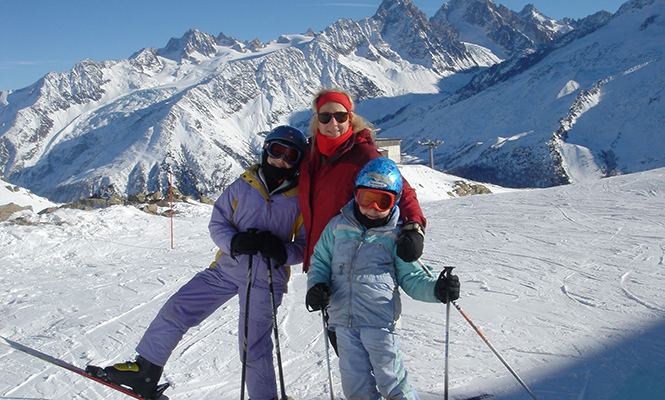I learned how to ski at around the same time I learned to walk. Skiing was not just a luxury, it was a necessity. Two light pieces of wood tightly strapped to my leather boots were much more practical and fun than plunging deep into the snow while walking home. Used as transportation for over 4,000 years, skiing became a sport in the 1900s. The first Winter Olympics took place in 1924 in Chamonix, France. Women were allowed to participated in the Winter Olympics in 1952 and compete in ski jumping in 2014.
I join many neurosurgeons who love to ski. For me as a young kid, what I loved most was to race. In retrospect, besides being fun, skiing greatly influenced the person and neurosurgeon I am today. There is more to appreciate about skiing than just the sport itself. Skiing is a discipline.
Stay focused: There is no way you can race through the gates if you do not focus.
Be mindful: You need to concentrate on what is happening in the present; your mind cannot wander.
Rehearse: You need to do the same run over and over again, each time thinking about how you can improve.
Teamwork: You need to do better for yourself, always try to beat your previous best time, but you also show up for your team.
You are the only woman here: Do not gasp, you can do it. Focus on your passion, resilience and skills, not on gender.
During my academic career, I cherished the opportunity to ski with my neurosurgeon colleagues. What is better than sharing one’s greatest passions: neurosurgery and skiing? Winter neurosurgery ski meetings were established by neurosurgeons who want to do just that. During those meetings, my neurosurgery knowledge and professional relations grew stronger. Particular highlights were times when we coupled helicopter skiing in the Canadian Rockies with neurosurgery. The Rockies’ powder, wilderness and solitude are unique and breathtaking.
When I buckle up my boots at the top of the mountain, I feel an incredible sense of gratitude for the beauty around me. Speeding down the mountain still gives me the thrill of freedom. I love doing that! Meeting with my friends at the chalet for hot chocolate warms my heart. I shared my skiing passion with my two daughters. In times when maternity leave was not an option, the neurosurgery ski meetings allowed me to spend quality time with them. On bluebird days, I took them skiing with me in a backpack even before they learned how to walk. It was a great opportunity for bonding, to refuel with warm milk at the hut and ski. They both grew up loving skiing. In the wintertime, they trained on the same mountains I did and ultimately raced for the U.S.
When talking sports, injuries are always a hot topic. My Surgeon Colonel Grandfather used to say that the most dangerous place to be is in bed, as over 50% of the population dies in bed. His humorous statement was usually spoken when people asked his opinion prior to engaging in sports or physical activity. Nowadays, we can further support his statement with evidence showing that sedentary life increases the risk of heart attacks, diabetes and possibly cancer. This raises the possibility that sedentary life could be more “dangerous” than skiing.
It is important to focus on injury prevention. Prior to the helmet era, my dear friend and teammate, Leonardo David, sustained a severe head injury and subsequently died as a result of a fall during his downhill race at the Winter Olympics in Lake Placid, N.Y. Surprisingly, in 2019, ski helmets are still not mandatory. Even if you are an expert skier, accidents can happen. Besides wearing the proper protection gear, injury can be prevented by preparing yourself for the mountain with the necessary training.
Skiing is the perfect sport for not just families, but also for adults who work together, like faculty and neurosurgery residents. Similar to most families’ dynamics, skiers help each other. There is some goofiness to the sport and most good skiers take themselves lightly. By and large, neurosurgeons who love to ski do so because they are athletic, kind and respect the outdoors. When burnout is a serious health issue, reducing productivity and sapping good energy, skiing can provide a great alternative. If you do not like the cold, do not panic. Some of the warmest, most enticing places are the après-ski chalets, where you can enjoy great food and outstanding company!
[aans_authors]








